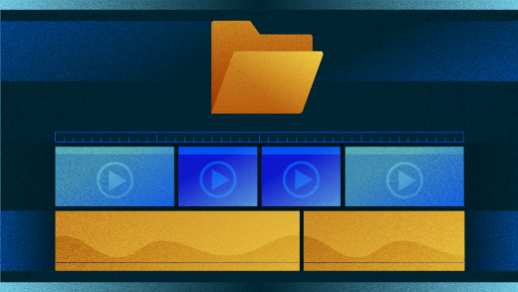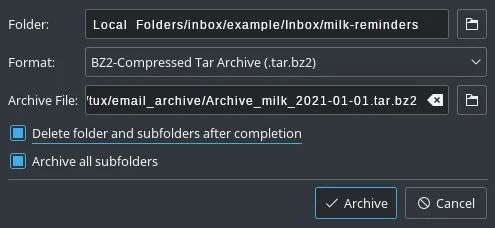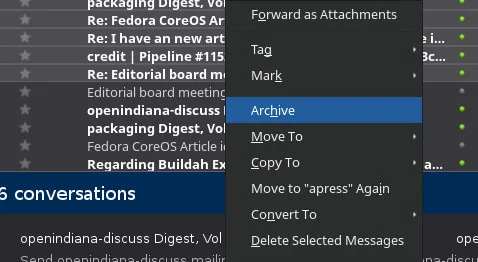5.6 KiB
How I de-clutter my digital workspace
Archive old email and other files to de-clutter your digital workspace.

In prior years, this annual series covered individual apps. This year, we are looking at all-in-one solutions in addition to strategies to help in 2021. Welcome to day 20 of 21 Days of Productivity in 2021.
I am a digital pack-rat. So many of us are. After all, who knows when we'll need that email our partner sent asking us to pick up milk on our way home from work in 2009?
The truth is, we don't need it. We really don't. However, large cloud providers have given us so much storage space for cheap or for free that we don't even think about it anymore. When I can have unlimited documents, notes, to-do items, calendar appointments, and email, why shouldn't I just keep everything?
It really does. (Kevin Sonney, CC BY-SA 4.0)
When dealing with physical items, like a notebook or a stack of documents, there comes a point where it is obvious we need to move it off our desks or out of our offices. We need to store it in some other place where we can get to it if we need to, but also know it will be safe. Eventually, that too fills up, and we are forced to clean out that storage as well.
Digital storage is really no different, only we're tempted to keep more things in it. If I have a note on my desk to pick something up on the way home, I'm going to throw it away when I'm done with it. That same note in my shared notebook with my wife is likely just to stay there. Maybe we'll re-use it, maybe we'll just let it sit there, taking up space.
This approach is the same as "hot" and "cold" storage. Hot storage is the most recent and relevant data that tends to be accessed frequently. Cold storage is for the archives we might need to refer to in the future and may have historical significance, but doesn't need to be accessed frequently.
Last year I took the time to export all of my emails from before 2019 and put them in an archive file. Then I deleted them. Why? For starters, I really didn't need any of it anymore. Sure it is nice to have the emails my spouse and I sent each other when we started dating, but they are not something I look at daily or even monthly. I could put them in cold storage, where they would be safe, and I could get them when I did want to look at them. The same for the emails and schedules for the conventions I had worked at before the pandemic. Do I need to have the schedule grid for my department at AnthroCon 2015 at my fingertips? NOPE.
Archiving messages
The process of archiving messages will differ, depending on what email client you use, but the general idea is the same. In KMail, the email client from KDE, you can archive (and export, by nature of the archival process) a folder of messages by right-clicking on a folder and selecting Archive Folder. I also have KMail remove the messages after completing the archive.
On the GNOME side of things, you can either export a folder of messages as an mbox file or you can use the Save As option to export it as an archive.
8 Gb of mail (Kevin Sonney, CC BY-SA 4.0)
If you're not on Linux, you might look into using the Thunderbird client. In Thunderbird, highlight the messages you want to archive (or press Ctrl+A to select all of them, and then right-click and select Archive.
Cold storage
I have been managing my documents, notes, online to-do lists, and so on, by archiving the excess. I keep the most recent and relevant, and then I move the rest either into an archive file that does not live on my machine. Otherwise, if they no longer have any relevance, I just delete them altogether. That has made finding the relevant information much easier because there aren't loads of old things cluttering up my results.
It is important to take some time and de-clutter our digital workspaces the way we de-clutter our physical workspaces. Productivity isn't just getting things done, but also being able to find the right things we need to do them. Moving data into cold storage archives means we can rest easy knowing that it is safe if we need it and out of our way for the 99.9% of the time when we don't.
via: https://opensource.com/article/21/1/declutter-workspace
作者:Kevin Sonney 选题:lujun9972 译者:译者ID 校对:校对者ID



